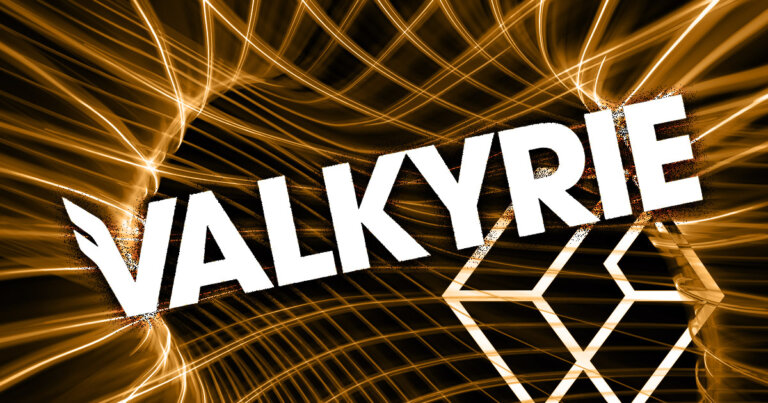 Valkyrie aims to rescue Grayscale’s Bitcoin Trust
Valkyrie aims to rescue Grayscale’s Bitcoin Trust Valkyrie aims to rescue Grayscale’s Bitcoin Trust
The company has plans to improve upon the operation of GBTC.

Cover art/illustration via CryptoSlate. Image includes combined content which may include AI-generated content.
Valkyrie Investments announced in a Dec. 28 statement that it has submitted a proposal to become the sponsor and manager of Grayscale’s Bitcoin Trust.
Grayscale BTC (GBTC) is among the largest Bitcoin investment funds, valued at 643,572 BTC ($10.6 billion) at present. However, the fund is also in trouble: in December, GBTC traded at 50% less than the value of the Bitcoin that it holds.
Valkyrie suggested that it plans to improve upon Grayscale BTC with various changes. It says that it aims to offer orderly redemptions at net asset value (NAV), allowing customers to withdraw their funds at a fair value without any issues. The company also aims to reduce GBTC fees and offer redemptions in both Bitcoin and cash.
The company also said that it is launching the Valkyrie Opportunistic Fund LP, which will take advantage of the discrepancy between GBTC and the NAV.
Valkyrie said that its proposal is a “significant improvement over the current management of GBTC and asked Grayscale to “consider it carefully.”
Grayscale, however, has its own plans. The firm intends to convert GBTC into an ETF to raise the price of the fund, though its past attempts to do so have failed due to rejections from the U.S. SEC. Grayscale has also suggested other possibilities, including a tender offer for up to 20% of outstanding shares, according to recent WSJ reports.
Valkyrie noted today that it has a “proven track record of success” with its own Bitcoin Trust, which has operated with daily liquidity since Jan. 1, 2021.
The firm added that it has launched several Bitcoin-related ETFs. The company was, along with VanEck and ProShares, one of three firms to launch the first Bitcoin futures ETFs in late 2021. Other firms have since launched Bitcoin futures ETFs.
Valkyrie has also been in the news for another reason over the past several weeks. Shortly before Valkyrie publicized its intent to manage GBTC, Coindesk revealed that TRON founder Justin Sun is among Valkyrie’s largest investors.
It is unclear whether Sun has any direct influence over Valkyrie, and, if so, whether he might have any reason to encourage or discourage it from working with Grayscale.




























































































 BTC
BTC

